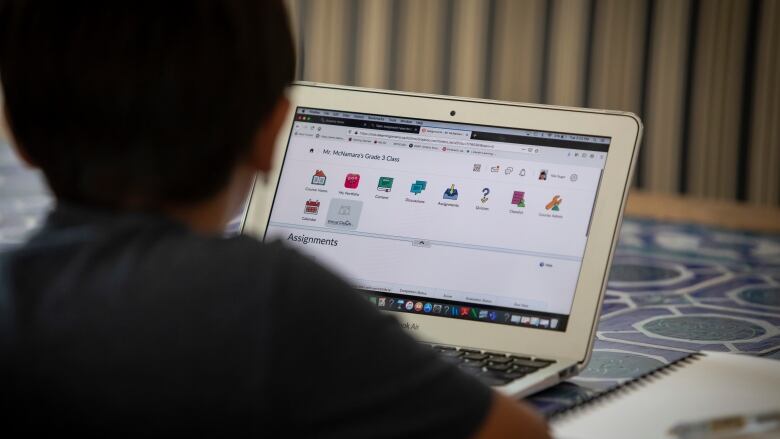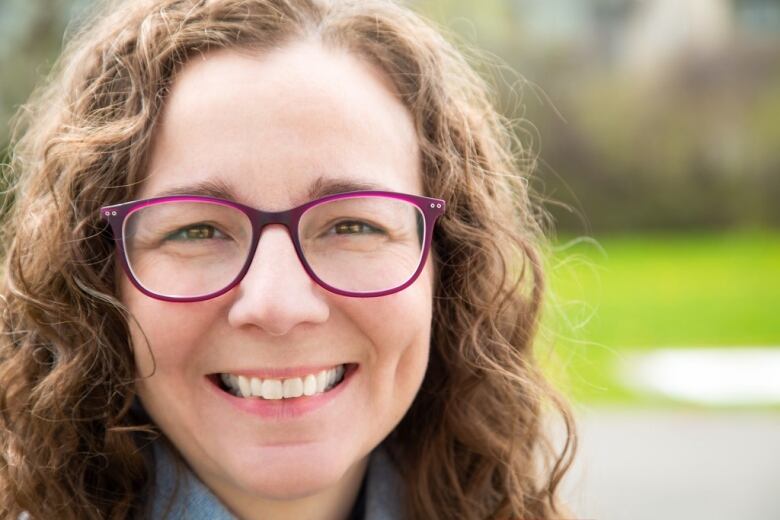Virtual classes proving trs difficile for French immersion teachers
Harder to ensure students aren't speaking English, say pair of Ottawa educators

Trying to get French immersion students to speak French in school was often challenging before the COVID-19 pandemic, but some teachers are concernedthat with everyone now online, theproblem has only gotten worse.
"I'm not hearing that the kids are always speaking French," said Kim Doucet, who's currently teaching Grade 2 French immersion with the Ottawa-Carleton Virtual School.
Doucet, a French immersion teacher for the better part of 25 years,said with the proliferation of Google Translate, virtual meetings and online breakout rooms, it'sbecoming more and more difficult for educators to enforce language rules during class time.
She said the lack of spontaneous interaction that would normally occur in a classroom is also causing some students to fall behind.
"We're not catching up to those gaps," Doucet said.
"If they're not being watched, they're not necessarily speaking French," agreedDanielle Takoff, a veteran teacher at Fisher Park Middle School.
"A lot of this is leading to slower development, especiallyfor students that might not be super motivated as others."

Takoff said it's difficult for teachers to know when students are relying on their own knowledgeand when they're turning to the internet for help.
"Google Translate is the bane of our existence as French immersion teachers," she said.
Another common challenge is video-conferencing itself: students don't have to turn on their cameras during class, and when teachers drop in on virtual breakout rooms smaller gatherings of students outside of the regular classroom some have reported catching their students speaking English to each other.
While Takoff has been exclusively teaching Frenchonline for the past five months, even when classes were held in-person, mandatory mask-wearing policies were making things more difficult.
"You rely on so many more cues, so with the mask that has added a barrier to communication," she said.

Some positives
With just over a month to go until the end of the school year, however, it hasn't been all bad.
Takoff said she's found that after she built trust and relationships with her students, they became more engaged and willing participants.
"If you've got a good class dynamic [and]students who are willing, we can hear them better, we can sort of focus one-on-one," she said
Doucet agreed that while it's been a difficult transition, most of her immersion students have done their best.
"[They] are really making huge gains in reading and oral communication," she said. "I am just thrilled with what my students are achieving even while being online."













_(720p).jpg)


 OFFICIAL HD MUSIC VIDEO.jpg)
.jpg)



























































































